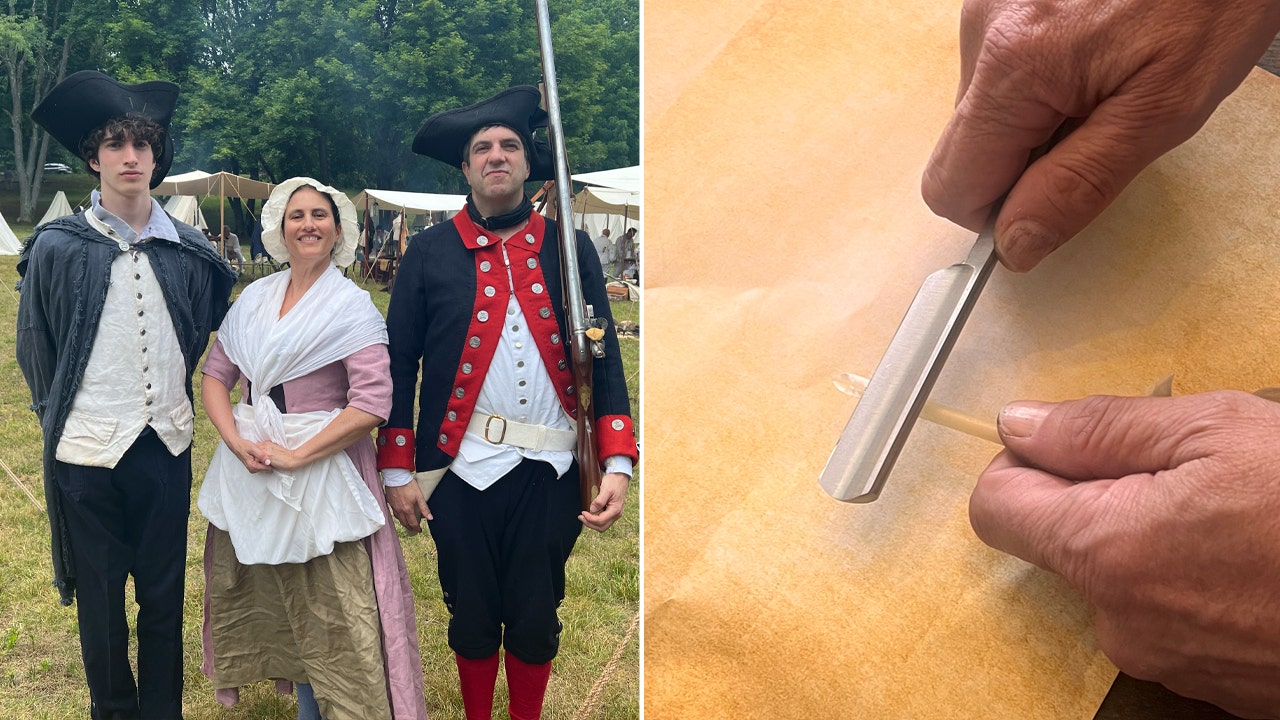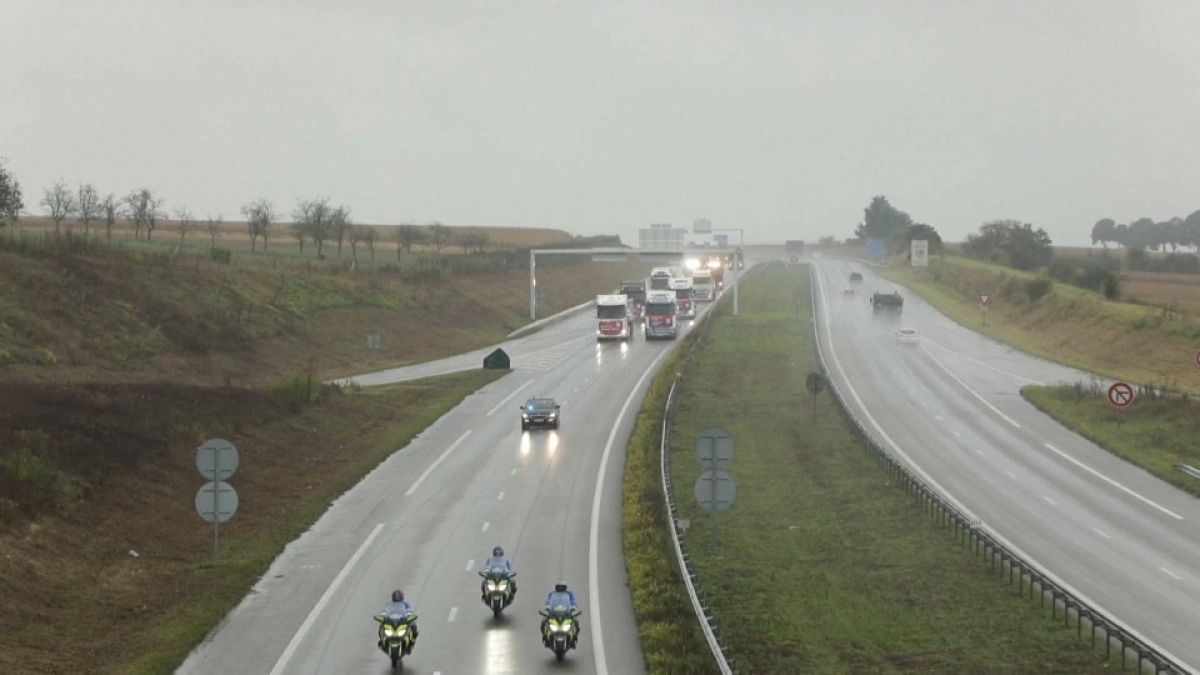Montana
Montana high school football computer rankings (10/8/2024)

Week 6 of the 2024 Montana high school football season is in the books, and High School on SI has published its second computer rankings of the season in the state.
Taking over the No. 1 spot in the latest Class AA rankings are the Glacier Wolfpack after a dominant 63-8 victory over Hellgate a couple weeks ago. Just behind them at No. 2 spot are the Gallatin Raptors, who remain undefeated. No. 1 team in 8-man is Belt followed by Valley Christian.
SBLive’s formula was created using its linear algebra-based ranking algorithm inspired by the Colley Bias-Free Ranking Method. Colley’s Method was created by Wes Colley, Ph.D., an astrophysicist at the University of Alabama at Huntsville. He devised his algorithm to help address the subjectivity and controversy regarding BCS college football selections in the 1990s and early 2000s, using a method that used no subjective variables.
- FAQ: SBLive High School Football Computer Rankings
Here are SBLive’s latest Montana football computer rankings, as of Oct. 8, 2024:
MONTANA HIGH SCHOOL FOOTBALL COMPUTER RANKINGS
CLASS AA | CLASS A
CLASS B | CLASS C | 8 MAN
Follow SBLive Montana throughout the 2024 high school football season for Live Updates, the most up to date Schedules & Scores and complete coverage from the preseason through the state championships!
Be sure to Bookmark High School on SI for all of the latest high school football news.
Download the SBLive App
To get live updates on your phone – as well as follow your favorite teams and top games – you can download the SBLive Sports app: Download iPhone App| Download Android App
— Andy Villamarzo | villamarzo@scorebooklive.com | @sblivesports

Montana
Canadian Man Sentenced For Gun Smuggling: Inside The Trafficking Scheme

A Canadian man is being ordered to spend a year and a half in a U.S. prison after pleading guilty to a scheme to buy guns in several Montana cities and then take them back across the border to sell.
The sentencing comes this week in U.S. District Court, a few weeks after the defendant pled guilty.
It marks the latest case where someone tried to take firearms that are more readily available in the states, and then take them back to sell on the black market in Canada, where certain guns are in high demand due to Canadian regulations.
Montana officers can confiscate your guns for this specific reason
How did the British Columbia man acquire the guns?
Federal prosecutors say 27-year-old Haptei Kozak or Kelowna, British Columbia had been accused of buying 12 handguns, mostly 9 millimeters, using an alias and a Montana driver’s license with a phony Missoula address. Prosecutors say he bought guns in Missoula, Kalispell, Butte, and Helena in a 45-day period starting last September.
Federal authorities say he was apprehended with the guns in his pickup last March in a case that involved US Customs and Border Patrol, Homeland Security Investigations, Royal Canadian Mounted Police, and the US Attorney’s Office District of Montana.
A growing problem of black market weapons
There’s been a growing problem in the past few years of thieves attempting to acquire guns in the United States and then get them across the border. As the CBC has reported, guns that sell in the States for a few hundred dollars can be worth thousands of dollars in Canada.
U.S. Attorney for Montana, Jessie Laslovich, says the case is part of an “epidemic of gun violence” both nationally and internationally, saying gun crime “knows no boundaries.”
“The courts have delivered a firm and unwavering message to those who seek to profit from violence and chaos,” said HSI Acting Special Agent in Charge Tim Lenzen. “Let this be a clear warning: we will not tolerate those who fuel crime through the black market. We will find you, you will be prosecuted, and justice will prevail.”
Fall is Best Season in Troy, MT
Montana
Transparency still one of Montana's cherished values • Daily Montanan

A few days ago, I was in Costco, and just as I rounded a corner, I passed a woman on the phone who said “Yeah, we was out digging, and when we come back in, there was Eric, dead in a mud puddle.”
That was the entirety of what I heard of the conversation, so I have as many questions as you do about what this single sentence meant in this woman’s life. From the lack of emotion in her voice, I had to assume that she was talking about a dog, but it’s entirely possible that it was one of her relatives, or someone who worked for them. Maybe even a vehicle?
This little incident made me think about the fact that you never really know what’s going on in someone’s life until you hear, as Paul Harvey used to say “the rest of the story.”
And as has been the case with so many of our most prominent politicians in recent years, the concerted effort to keep the rest of the story away from public view has become an art form, particularly in the Republican party. Greg Gianforte has somehow built a career in Montana without making himself available to public scrutiny. His “rallies” have generally been highly controlled gatherings, vetted to include only those who support him. After the way he handled a question he didn’t like in his first congressional race, it’s not hard to imagine why his handlers have taken this approach but it seems even more calculated than that.
It seems as if Gianforte and most of his contemporaries have come to realize that as long as they have an “R” next to their names, they don’t have to say much to garner support in Montana. So talking about anything publicly, or having any information released to the public, is actually risky.
Montana Attorney General Austin Knudsen found this out the hard way recently when he gave the OK to the Colonel of the Highway Patrol, Steve Lavin, to conduct a survey among his staff, and the results of the survey were not flattering, especially toward Knudsen himself.
When the Daily Montanan published these results, Knudsen was so furious that he had his office issue a cease-and-desist order to the newspaper, trying to get them to retract the article. But of course this survey fell under the public information act because it was conducted by a government agency, so he didn’t have a leg to stand on, something you’d expect an attorney to understand. But Knudsen is not your ordinary attorney. He thinks nothing of bending the rules for his own benefit.
In fact, he went on to make the decision to force out Lavin, giving him no explanation, but considering it happened right after the survey, it’s pretty easy math. When Lavin did a little research and realized that firing him without cause was not legal, he filed a lawsuit, and this is just the latest in a series of charges against Knudsen, who is already being investigated for 41 instances of professional misconduct.
It has become increasingly clear, as Gianforte tried to avoid agreeing to a debate with Democratic challenger Ryan Busse, and Knudsen attempts to stifle the truth, that the Republican party in Montana is working hard to control the narrative, and only dole out a few morsels of information about what they’re up to. Because when the truth is damning, people generally do whatever they can to stifle it. Thankfully, we still have enough of a press in this country to bring these facts to light.
But please, Montanans, be aware of how hard these people are working to hide their truth from you. Although Gianforte eventually agreed to a debate, he still rarely makes public appearances that aren’t completely staged. Transparency has always been valuable to Montanans, and it should be even more so now.
Montana
Truth Be Told: PACs vs. candidate ads in Montana's U.S. Senate race

BILLINGS- With a month until the November, general election, Montanans are being inundated with political advertising.
“It’s constant. It’s every ad break on television,” said Paul Pope.
Pope, a professor at MSU Billings and political analyst, said voters can’t get a break from it.
“You need to protect your mental health,” he said.
But parties are in the end stretch of the election cycle with spending topping into the billions for Montana’s U.S. Senate race.
“We are seeing $3 billion election cycles now and a lot of it is buying ad time,” he said.
Pope says sometimes it’s hard for voters to know the difference between facts and untruths.
First, it’s important to know who is sponsoring the ad.
“A PAC or a political action committee is a group specifically formed for political advocacy,” explains Pope. “A candidate’s ad is something that comes from its campaign.”
Perhaps one of the most memorable PAC ads in recent weeks is one centering around a claim that white farmers in Montana didn’t receive crucial funding based on race.
The ad doesn’t come from Tester’s Republican opponent, Tim Sheehy, but instead comes from a Super PAC called the Senate Leadership Fund, whose goal is building a Republican senate majority.
Pope says PACs use the muscle of the First Amendment to toe an unethical line about their opponents.
“The PAC ads are often very exaggerating with the claims that they make, and in some cases, they are outright lies,” said Pope.
The claim made in the ad is false, according to Tester’s voting record and Walter Schweitzer with the Montana Farmer’s Union.
Schweitzer says the Discrimination Financial Assistance Program, which is referenced but not named in the ad, was born out of good intentions.
Initially it never went into effect, so no farmers were turned away from funding.
“For decades, disadvantaged farmers and ranchers have been denied financial assistance,” said Schweitzer.
Under the Inflation Reduction Act, the USDA gave money to 228 Montana farmers who reported discrimination.
Schweitzer says white farmers were never denied funding and received thousands of dollars in aid from the agency through the years.
“I am sure there were some women farmers who used this funding, I am sure there were some Native American farmers who received funds from this,” he said.
In 2022, Tester voted for the Inflation Reduction Act, which replaced an earlier version of the Discrimination Financial Assistance Program with one that doesn’t discriminate based on race.
The program is currently in effect today with recipients reporting discrimination including age, gender, and religion.
The attack ads go both ways.
In 2023, the Last Best Place Super PAC was found to violate finance reporting requirements for ads calling Sheehy, “Shady Sheehy”. The complaint alleges the PAC failed to file required pre-election independent expenditure reports.
“The voter has to use more than these campaign ads to figure out what they want from a candidate,” said Pope.
He says voters must look beyond the salacious language and follow the money.
“They have to go to the candidate’s web page. They have to look at the candidate’s history,” he said.
-
/cdn.vox-cdn.com/uploads/chorus_asset/file/25439572/VRG_TEC_Textless.jpg)
/cdn.vox-cdn.com/uploads/chorus_asset/file/25439572/VRG_TEC_Textless.jpg) Technology6 days ago
Technology6 days agoCharter will offer Peacock for free with some cable subscriptions next year
-

 World6 days ago
World6 days agoUkrainian stronghold Vuhledar falls to Russian offensive after two years of bombardment
-

 World6 days ago
World6 days agoWikiLeaks’ Julian Assange says he pleaded ‘guilty to journalism’ in order to be freed
-

 Technology5 days ago
Technology5 days agoBeware of fraudsters posing as government officials trying to steal your cash
-

 Health4 days ago
Health4 days agoHealth, happiness and helping others are vital parts of free and responsible society, Founding Fathers taught
-

 Virginia1 week ago
Virginia1 week agoStatus for Daniels and Green still uncertain for this week against Virginia Tech; Reuben done for season
-

 Sports4 days ago
Sports4 days agoFreddie Freeman says his ankle sprain is worst injury he's ever tried to play through
-

 News4 days ago
News4 days agoLebanon says 50 medics killed in past three days as Israel extends its bombardment















